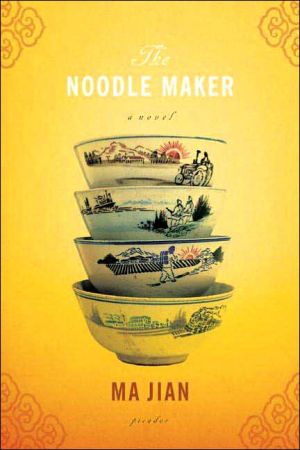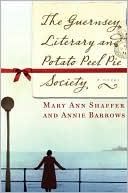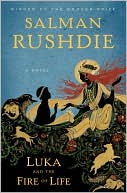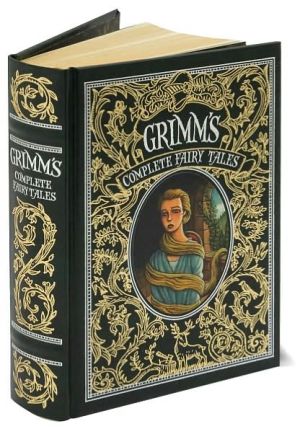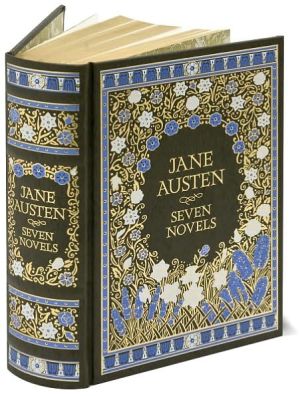Noodle Maker
From Mi Jian, the highly acclaimed Chinese dissident, comes a satirical novel about the absurdities of life in a post-Tiananmen China.\ Two men meet for dinner each week. Over the course of one of these drunken evenings, the writer recounts the stories he would write, had he the courage: a young man buys an old kiln and opens a private crematorium, delighting in his ability to harass the corpses of police officers and Party secretaries, while swooning to banned Western music; a heartbroken...
Search in google:
From Mi Jian, the highly acclaimed Chinese dissident, comes a satirical novel about the absurdities of life in a post-Tiananmen China.Two men meet for dinner each week. Over the course of one of these drunken evenings, the writer recounts the stories he would write, had he the courage: a young man buys an old kiln and opens a private crematorium, delighting in his ability to harass the corpses of police officers and Party secretaries, while swooning to banned Western music; a heartbroken actress performs a public suicide by stepping into the jaws of a wild tiger, watched nonchalantly by her ex-lover. Extraordinary characters inspire him, their lives pulled and pummeled by fate and politics, as if they are balls of dough in the hands of an all-powerful noodle maker.Ma Jian's satirical masterpiece allows us a humorous, yet profound, glimpse of those struggling to survive under a system that dictates their every move.Publishers WeeklyHaving "boarded the express train of the Open Door Policy," the characters in Ma's (Red Dust) satisfying, satirical novel now find themselves disembarking in a land caught between the "bourgeois liberalism" of the West and the Communist strictures of the East. Here a novelist wears nail polish ("Blood-stained hands!") as Party leaders appoint her the town's first "professional writer," while an entrepreneurial son surreally roasts his willing mother in his busy homemade crematorium. The interlocked stories that make up this work spill out over a Sunday night dinner between two argumentative old friends: Sheng, a blocked writer just one propagandist novel away from an entry in The Great Dictionary of Chinese Writers, and Vlazerim, a wealthy professional blood donor. Sheng longs to write a novel based on the lives of his intimates, but the consequences of defying the Party, including demotion in professional rank and guaranteed literary obscurity, paralyze him. Instead he spends his days vociferously critiquing his neighbors' cooking as he daydreams. In these imaginings, he transforms the lives of those around him into high art, in much the same way a noodle maker turns plain ingredients into nourishing sustenance. Ma's spare meal of a novel provides an excellent counterpoint to the sumptuous lyrical banquet Soul Mountain by Nobel Prize winner and fellow expatriate Gao Xingjian. Agent, Sarah Chalfant. (Jan.) Forecast: This short, elegantly odd book may prove an accessible introduction for U.S. readers to contemporary Chinese literature. First serial to the New Yorker. Copyright 2004 Reed Business Information.
The Professional Writer\ The study faces a kitchen window of the opposite building. At midday or dusk, 'waves of delicious frying smells stroke or sometimes blast their way through my nose and stomach'. The professional writer always speaks with this level of precision during his conversations with the professional blood donor.\ The writer can now distinguish smells from at least three of the kitchens below. Living at the top of an eight-floor building as he does, he has no choice but to get used to them. As long as the couple from Hubei (he's convinced they are the culprits) are not fouling the air with their fried chillies, he can sit back and enjoy the smells that waft up from several floors below. Whenever he pushes his window open to let the smells in, his eyes drift from the blank manuscript paper on his desk, and he sinks into a trance.\ The kitchen directly opposite him is very much to his taste, and if he's not feeling too particular, he can spend an entire afternoon luxuriating in the fragrance of their fish-head soup. He's seen those large fish heads in the market; you only need buy half a head to make a pot of soup. As the middle-aged woman in the kitchen opposite tosses the Superior Dried Mushrooms, fresh from the local supermarket, into the wok, the professional writer (forties, slightly overweight, single) is overcome once more by the sweet aromas. Now and then, in the dim light, he glimpses a short little man appearing and disappearing between the kitchen implements and washing-up cloths, sausages and prime joints of ham that hang from the ceiling. If their smoke extractor were not making such a racket, he'd be able to hear them talk, and then he could find out at last whether the short little man is her husband, her son, or a Jewish trader from Chaozhou. This question often flits through his mind when he stares down at the blank page on his desk. Before his good friend the professional blood donor arrives today, he spits furious insults at the kitchen. 'Ginger!' he mutters impatiently. 'Fucking idiots! Don't you know you have to put ginger in fish-head soup?'\ Later that Sunday afternoon, the blood donor turns up at the writer's apartment block as usual. Listening to him plod and pant up the stairwell, the writer can tell that his friend has just given blood. The donor is indeed as happy as a poet as he struggles up the stairs, for today he's brought with him wine (it's usually a bottle of Anhui or Hubei medicinal wine), roast goose, eggs (real brown eggs) and the writer's favourite delicacy: a jar of spicy broad beans. Soon the friends will swig back the wine and start to rummage through the fragments of their lives. They will pour their hearts out to each other, insult and curse each other, while all the time savouring the pleasant sensation of food rubbing into their stomachs. Then the blood donor will try to provoke the writer into swearing at him. He loves to hear him swear; the foul language offers him a spiritual comfort sorely lacking in a life lived through giving blood.\ 'For fuck's sake!' he will hear the writer moan as the alcohol drifts to his head. 'You're wasting your time on those fucking losers, you miserable bastard . . .'\ The writer opens his door to let the blood donor in. After a brisk embrace, they arrange the food on plates, open the bottle of wine, and spread out sheets of manuscript paper for the discarded bones. The writer then carefully tears a sheet of paper in half to make two napkins: one for his hands, the other for his mouth. (His grandfather did the same when he was alive, but used a piece of old cloth instead.) They take their seats at the table. The writer squeezes into his state-allotted black leather revolving chair, the professional blood donor perches on a plastic stool.\ 'Are you suffering, my friend?' the blood donor asks, hoping to lure the writer out of his shell. 'Last week you said that life was hell. Am I right?'\ 'Last year I thought life was hell. Last week I thought it was unbearable. Today I just think it's a bore. Maybe tomorrow I'll give up on this damn novel, if I still can't manage to put these characters onto the page.' The professional writer's voice is always hoarse before the wine starts to take effect. It sounds as though he is putting it on.\ 'But you hate those people! You said they're dregs, worthless trash. You said I was the scum of the earth too. Why waste your time writing about them?' The blood donor's face is as pale as it was when he first entered the room.\ 'I want to transform their lives into a work of art, although I'm sure they will never bother to read it.' The writer glances around the room, or perhaps he's just moving his head. 'Stupid bastards!' he grumbles. 'They always forget to put ginger in their fish-head soup.'
\ Publishers WeeklyHaving "boarded the express train of the Open Door Policy," the characters in Ma's (Red Dust) satisfying, satirical novel now find themselves disembarking in a land caught between the "bourgeois liberalism" of the West and the Communist strictures of the East. Here a novelist wears nail polish ("Blood-stained hands!") as Party leaders appoint her the town's first "professional writer," while an entrepreneurial son surreally roasts his willing mother in his busy homemade crematorium. The interlocked stories that make up this work spill out over a Sunday night dinner between two argumentative old friends: Sheng, a blocked writer just one propagandist novel away from an entry in The Great Dictionary of Chinese Writers, and Vlazerim, a wealthy professional blood donor. Sheng longs to write a novel based on the lives of his intimates, but the consequences of defying the Party, including demotion in professional rank and guaranteed literary obscurity, paralyze him. Instead he spends his days vociferously critiquing his neighbors' cooking as he daydreams. In these imaginings, he transforms the lives of those around him into high art, in much the same way a noodle maker turns plain ingredients into nourishing sustenance. Ma's spare meal of a novel provides an excellent counterpoint to the sumptuous lyrical banquet Soul Mountain by Nobel Prize winner and fellow expatriate Gao Xingjian. Agent, Sarah Chalfant. (Jan.) Forecast: This short, elegantly odd book may prove an accessible introduction for U.S. readers to contemporary Chinese literature. First serial to the New Yorker. Copyright 2004 Reed Business Information.\ \ \ \ \ Kirkus ReviewsFollowing the success of Chinese dissident Ma Jian's memoir Red Dust (2001), this political satire, originally published in 1993, now appears in English after a first-serial excerpt in The New Yorker. Nine linked stories take as their background the reforms carried out by Deng Xiaoping after Mao's death. While the Party is still firmly in control, capitalist enterprises and foreign imports are now sanctioned. "Suddenly we find ourselves in the forest of modern life without a map or a compass," comments a man, known as the professional writer, who is talking to his friend the blood donor. The writer is a penurious Party hack; the profit-seeking blood donor is now a millionaire, thanks to Deng. Their conversations form a frame for other tales about characters from the writer's unfinished novel (not a Party project). Among them are the owner of a for-profit crematorium, who strips corpses of their burial clothes before sending them into the oven to the sound of their favorite music; an actress who stages her suicide ("the latest act from Japan"), allowing a showbiz-savvy tiger to eat her; and a henpecked editor whose wife rides the reforms like the crest of a wave, forsaking novel writing to become a black-market trader and another capitalist success story. The best tale shows a man trying to abandon his retarded daughter (a side-effect of the One Child Policy) but growing increasingly fond of her in the process; it's succinct and right on target. The political satire here is equaled in potency by a pervasive disgust with the body, expressed by some characters (the actress complains of "slimy male fluids") but merely endured in silence by others (a wretched young textile worker, mistress ofthe editor). A comment that the "gentle and kind" expression has disappeared from Chinese faces sounds heartfelt. Blistering satire somewhat marred by long-windedness. Agent: Sarah Chalfant/The Wylie Agency\ \
